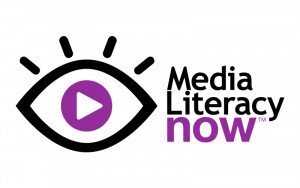Whether you’re focused on your classroom, home, community, or constituents, we have a number of resources and tools available to help you advocate for media literacy education. The MLN Resource Library is offered as one convenient source of information, like any other library.
Want to suggest a resource we should add? Use this form.
Students evaluate a conspiracy theory and, later, a pseudoscience claim, then apply …
Biology is a “fact-based subject” socially embedded in a world of opinions, …
This lesson allows students to practice reading laterally in a scientific context. …
This collection of lessons looks at news literacy on a variety of …
These lessons use the film Food Evolution to engage students in critical …
This lesson focuses on how media influences politics and society. Students learn …
The toolkit provides three lessons to teach about misinformation. The third learning …
Students observe and reflect on photographs of “nature” and then explore how …
Chemistry students perform experiments to explore the efficacy of efforts to reduce …
These lessons provide an instructional approach to help students learn how to …
This is a three-part activity for engaging biology students in evaluating the …
This lesson focuses on credibility. The central questions are: Can you believe …
This lesson focuses on credibility. The central questions are: Can you believe …
The lesson guides students through evaluating the scientific content in a popular …
This comprehensive four lesson unit for grades 6-12 includes a free short …
Students are invited to discuss a 1917 advertisement featuring a table showing …
Students identify correlation and causation terms in mainstream and scientific articles regarding …
This lesson helps students ascertain the reliability of news and information about …
In this Nearpod Digital Citizenship and Literacy lesson, students identify strategies for …
Students form groups of three. Each group finds one wacky-sounding science story …
The lesson provides a scaffolded activity to help students evaluate sources and …
This page has several short videos and infographics addressing scientific misinformation and …
These two 5E Inquiry lessons are centered around identifying expertise. Students are …
This resource is a photograph of people in a newsroom and a …

